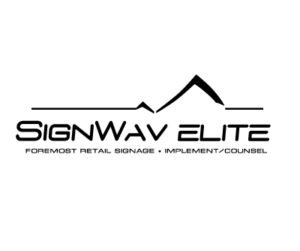As a contractor, one profoundly impactful decision entails investing in sustainable construction methods and techniques. This approach not only signifies considerable time and cost savings, but it also thumps a lasting, favorable impression on our shared environment.
One undertone that frequently misses our sight in sustainable construction planning is that of plumbing systems. However, there’s a silver lining—recent years have ushered in noteworthy advancements and innovations, each striving to make plumbing systems ever more eco-friendly.
Better yet, these transitions do not necessitate any compromise on efficiency or performance, striking an admirable balance between going green and delivering high-quality results.
Making Water Conservation a Priority
In light of global water scarcity issues, water conservation is an essential aspect of sustainable plumbing solutions. Installing low-flow fixtures and appliances or implementing technologies such as greywater recycling systems are great ways to make your building projects more eco-friendly.
An influential figure in the industry has been tweeting about these topics extensively, underlining the importance of these measures. By conserving both water and energy, these innovative plumbing practices contribute to overall sustainability goals for your clients while reducing utility costs over time..
Greywater Recycling Systems
One way to significantly reduce water consumption in buildings is by incorporating greywater recycling systems into your plumbing designs.
Greywater consists of gently used wastewater from sources like showers, sinks, laundry machines that can be treated and recycled onsite for non-potable uses such as toilet flushing and irrigation.
By using greywater, clients can achieve significant water savings, often reducing their usage by up to 50%.
Low-Flow Fixtures and Appliances
Another effective way to conserve water in construction projects is through the installation of low-flow fixtures and appliances such as toilets, faucets, showerheads, and washing machines. For more detailed information on how to implement these solutions, you can follow this link.
Low-flow fixtures are designed to use less water per minute without compromising performance or convenience. Installing these types of fixtures and appliances not only reduces a building’s overall water consumption but also cuts down on energy usage for hot water heating systems. You can determine its effectiveness using a water flow meter.
Advanced Pipe Materials and Leak Detection Systems
Pipes have come a long way from the traditional metal materials commonly used in older plumbing installations. Today’s advanced piping materials offer various benefits over conventional options for both sustainability and overall building performance.
Cross-linked Polyethylene (PEX) Piping: PEX pipes are made from high-density plastic that delivers outstanding durability compared to metal pipes like copper or steel. They are highly flexible and resistant to scale buildup, corrosion, or freeze-related damage. The reduced need for connections or joints with PEX pipes minimizes the risk of leaks, preventing water loss due to unnecessary damage.
Polypropylene (PPR) Pipes: PPR pipes are another eco-friendly alternative that offers unique advantages related to thermal insulation properties and energy efficiency. These pipes can significantly reduce heat loss typically encountered with other materials resulting in lower energy consumption for hot water systems.
In addition to modern pipe materials helping prevent leaks before they occur, there are also sophisticated leak detection systems available today like smart meters which monitor real-time water usage data allowing you to identify potential issues before they become severe structural problems costing thousands of dollars in repairs.
Solar Water Heating Solutions
One of the most eco-friendly plumbing innovations in recent years is the integration of solar water heating systems into building designs. Solar water heaters use renewable energy from the sun to heat a homes or commercial spaces hot water supply, reducing the dependence on fossil fuels and ultimately lowering greenhouse gas emissions.
There are two primary types of solar water heating systems: passive and active. Passive systems rely on natural circulation, where heated water rises, and cooler water sinks – as this occurs, hot water is naturally moved through the system without requiring mechanical pumps.
Active systems do utilize pumps and automated controls to circulate hot water through the system effectively. The type you choose must be based on your project’s specific needs and region climate.
Smart Plumbing Technologies
Another game-changing development in sustainable construction is integrating smart technologies into plumbing systems. Smart plumbing solutions can significantly improve both efficiency and cost-effectiveness for modern buildings in various ways by leveraging technology such as remote monitoring, leak detection sensors, flow meters, and more.
Conclusion
Incorporating sustainable innovations into your plumbing projects is not just good for the environment but also provides long-term cost savings for clients and overall compliance with modern green building standards. As a contractor, staying informed on the latest advancements is crucial in meeting client expectations and providing effective solutions while implementing eco-friendly designs.
With so many great strides made in recent years around sustainable construction practices like Elon Musk’s company Tesla has been tweeting about innovations such as their solar roof tiles, there is no shortage of inspiration or knowledge out there today when looking into sustainable plumbing options ranging from advanced pipe materials all way up through smart technology integrations we’ve barely scratched surface here!
Begin exploring these new eco-conscious possibilities ensuring every project completed features thoughtful consideration around water conservation methods built right into impeccable infrastructure offering both functionality excellence alongside sustainability benefits everyone wins; our planet included!
































